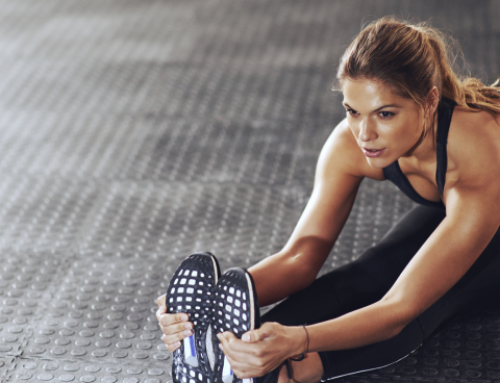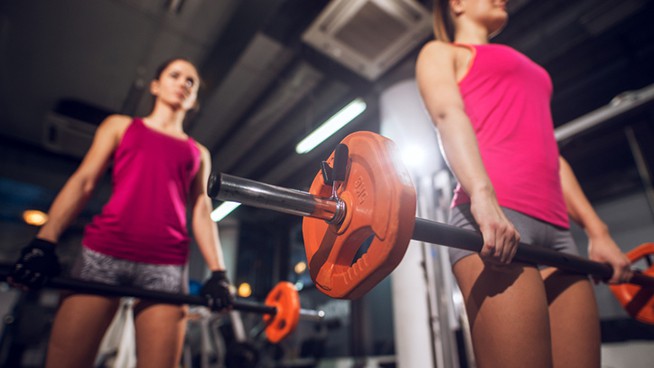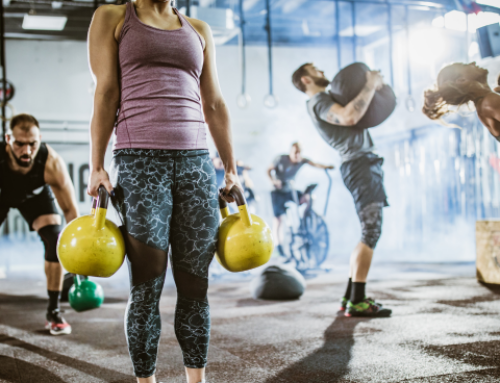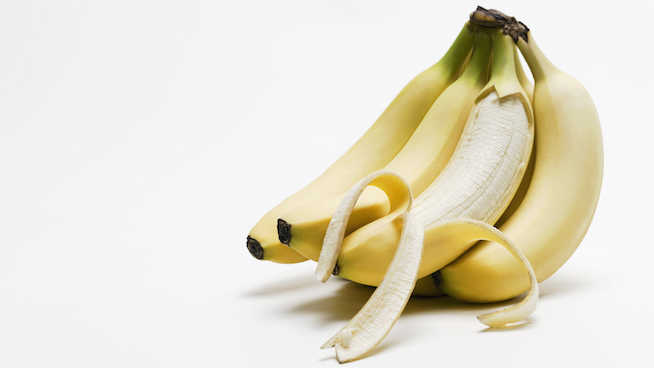STACK Science: All About Sweat

As an athlete, you’ve ended many workouts, practices and games with your clothes drenched in perspiration. It might feel uncomfortable, but sweating is a critical bodily function, one that allows you to maintain performance.
When and Why Do We Sweat?
The body constantly generates heat to maintain its normal temperature of approximately 98.6 degrees. Heat is transferred to the air through the skin. However, sometimes this isn’t enough.
When you exercise, your muscles generate even more heat. To improve the cooling process, drops of moisture [sweat] are released to more efficiently transfer heat to the air and cool your body.
Regardless of the outside temperature, most people sweat when they exercise. In a hot environment, the combination of exercise and heat may overwhelm your body’s ability to cool itself, putting you in danger of heat sickness. During extremely hot days, experts recommend limiting high intensity exercise, taking frequent breaks and having access to cool water.
What Do We Sweat?
Sweat is primarily water, but it also includes minerals like sodium and potassium. Sodium makes sweat taste salty and leaves white residue on your clothes.
Why Do Some People Sweat More Heavily Than Others?
It’s a misconception that people who are out of shape sweat more profusely. In fact, the opposite may be true, since athletes generally have more heat-generating muscles. Also, the body adapts to training and performing in high heat so it can cool off more efficiently. This is why you might not sweat as much when first starting a workout program compared to a few weeks later.
How to Help Cool Yourself Off
One of the best ways is to wear athletic clothing that wicks away sweat. This speeds up the cooling process. Also, drink cool water to reduce your body’s internal temperature, and splash water on your face.
In addition to cooling down the body, it’s critical to replenish the fluid and electrolytes lost through sweat to prevent dehydration, continue sweating and maintain performance. Nutrition experts recommend replenishing with water or a sports drink during and after workouts, practices and games. A common way to determine how much to drink is to weigh yourself before and after exercise and consume one pint of fluid for each pound lost.
Photo: sportskeeda.com
RECOMMENDED FOR YOU
MOST POPULAR
STACK Science: All About Sweat

As an athlete, you’ve ended many workouts, practices and games with your clothes drenched in perspiration. It might feel uncomfortable, but sweating is a critical bodily function, one that allows you to maintain performance.
When and Why Do We Sweat?
The body constantly generates heat to maintain its normal temperature of approximately 98.6 degrees. Heat is transferred to the air through the skin. However, sometimes this isn’t enough.
When you exercise, your muscles generate even more heat. To improve the cooling process, drops of moisture [sweat] are released to more efficiently transfer heat to the air and cool your body.
Regardless of the outside temperature, most people sweat when they exercise. In a hot environment, the combination of exercise and heat may overwhelm your body’s ability to cool itself, putting you in danger of heat sickness. During extremely hot days, experts recommend limiting high intensity exercise, taking frequent breaks and having access to cool water.
What Do We Sweat?
Sweat is primarily water, but it also includes minerals like sodium and potassium. Sodium makes sweat taste salty and leaves white residue on your clothes.
Why Do Some People Sweat More Heavily Than Others?
It’s a misconception that people who are out of shape sweat more profusely. In fact, the opposite may be true, since athletes generally have more heat-generating muscles. Also, the body adapts to training and performing in high heat so it can cool off more efficiently. This is why you might not sweat as much when first starting a workout program compared to a few weeks later.
How to Help Cool Yourself Off
One of the best ways is to wear athletic clothing that wicks away sweat. This speeds up the cooling process. Also, drink cool water to reduce your body’s internal temperature, and splash water on your face.
In addition to cooling down the body, it’s critical to replenish the fluid and electrolytes lost through sweat to prevent dehydration, continue sweating and maintain performance. Nutrition experts recommend replenishing with water or a sports drink during and after workouts, practices and games. A common way to determine how much to drink is to weigh yourself before and after exercise and consume one pint of fluid for each pound lost.
Photo: sportskeeda.com











